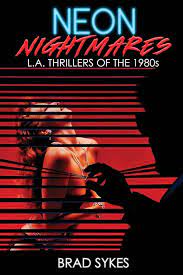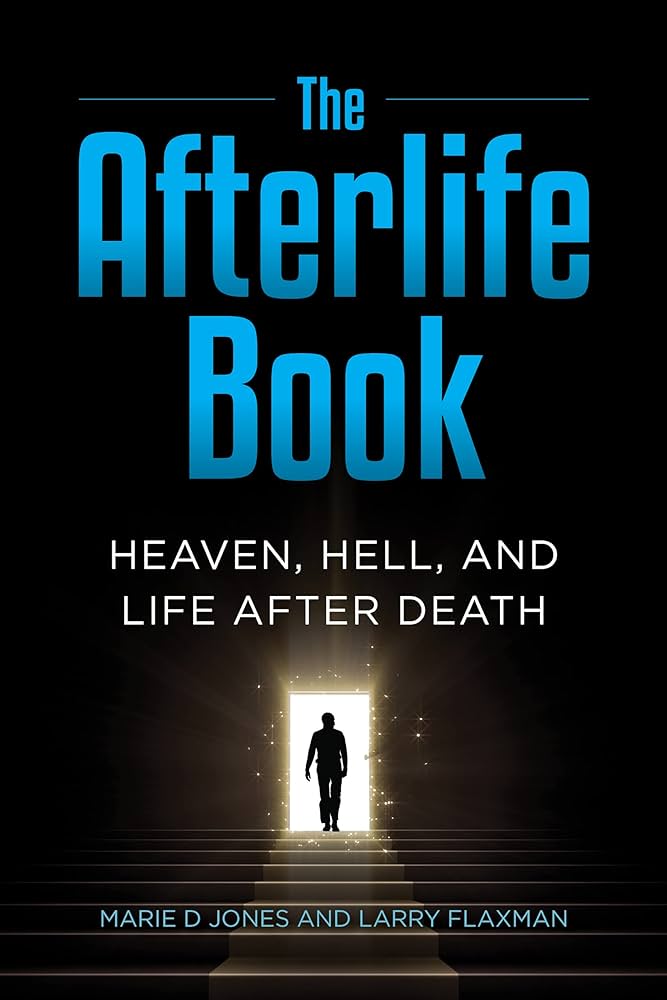Selina Sondermann – Interview
It’s amazing that the Stephen King Dollar Baby Program has been around for over 40 years! This program has helped so many up-and-coming filmmakers, not to just take their vision of a Stephen King story and put it on the big screen, but it has also opened many doors for them to bigger projects within the film industry.
I have enjoyed the Dollar Baby program for many years now, taking on new interviews, and Dollar Baby reviews with joy and excitement. Meeting these independent filmmakers is truly an inspiration. My latest Dollar Baby interview comes all the way from Germany! Not only is this a young woman who has passion and a love for film, but has something to say, and she does it through her work. Selina Sondermann is an amazing filmmaker, and a joy to talk to. However, before we get to the interview, lets find out just a little bit about this new generation filmmaker.
Selina Sondermann was born in Austria, and has a very impressive upper educational background. She attended Europagymnasium in 2011, in Linz Austria, Linz International School in 2011, JKU Linz, from 2011-2012, studying sociology, Kingston University, class of 2015, studying filmmaking in Kingston, New York University in July 2015 – August 2015, studying screenwriting and creative writing in New York City, NY, and Metfilm School Berlin, studying directing, class of 2018.
After working at various jobs, some at film companies, Selina got behind the camera in 2015 with her first film, AUTHROPOPHILIE, followed by her films, GINGER (2016), THREE-WHEEL STROLLER (2018), and the Stephen King adapted short story, DEDICATION. Selina has a strong love for film, and her talents clearly show in her work.
Here is my exclusive interview with director Selina Sondermann!
Tony Northrup – I want to start off by saying, thank you Selina, for joining us today. Tell us what it was like growing up in Germany, and when did you first discover the writings of Stephen King?
Selina Sondermann – Thank you for having me!
I am a Berliner-by-choice, but was actually born and raised in Austria. Despite how often I complain about the country, I realize how privileged I am, having grown up in a place where things like public health care, and access to education are a given. A place where I can hop onto a train and have breakfast, lunch and dinner, in three different countries if I feel like it. A place where people don’t get stoned to death for loving who they love. Even the fact that I can criticize Austria’s government without fear of punishment, is proof of the freedom I enjoy in Europe.
I first discovered Stephen King when I was about 12 years old. In a discussion about the uncanniness of clowns, a school friend mentioned a film about a clown, who eats children. Hence in the summer break that followed, I spent my vacation reading my first King novel. I have quite vivid memories of reading It by the pool and having goosebumps despite the warm weather.
TN – You have attended many universities around the world (Austria, Germany, the United Kingdom, and New York in America). Which did you enjoy the most, and which one helped you more prepare for the world of filmmaking?
SS – All of these experiences contributed to who I’ve become as a person and a filmmaker.
My summer term at NYU’s Tisch School of the Arts was without a doubt the most invaluable lesson I had in terms of my writing practice. It was more like a bootcamp, not quite comparable to the degree courses I completed in London and Berlin, but over the short amount of time I learned so much. It’s obvious why NYU is regarded one of the best film schools.
TN – What was the first Stephen King movie you saw, and what is it about King’s stories that draws you in?
SS – I think the first movie was It (1990) as well, I don’t precisely remember whether I saw it before or after I read the novel. The first one that really stuck with me emotionally was Dolores Claiborne however. What caught me back then, and what still draws me in are the characters first and foremost. Stephen King has the ability of creating fictional people that are just as real as the people we see on the streets every day, if not more so. In a few entertaining scenarios, when we aren’t looking, he shares with us their hopes, their dreams, their shortcomings. He makes us care, which is why we fear for the characters, when he puts them in harms way.
TN – Before we get started about your Stephen King Dollar Baby film, DEDICATION, lets talk a little about some of your earlier films: GINGER, THREE WHEEL STROLLER, and ANTHROPOPHILIE. Share with us a little bit about what they are about, and which one you enjoyed most working on?
SS – Anthropophilie and Ginger were both made within the same year so they’re quite similar in terms of approach – one is about consensual cannibalism, the other about the women targeted by the serial killer known as Jack the Ripper. Both sound like classic horror films at first, but in truth, are dramas that deal with people’s personal struggles and desires.
Three-Wheel-Stroller is a story about a threesome that results in a pregnancy.
Asking me to choose between my films is a bit like asking a parent which of their offspring they prefer, but Anthropophilie is the one closest to my heart. If there is only one story I can ever tell, this is it. I am currently writing the feature length script for it.
TN – How did you first learn about the Stephen King Dollar Baby Program? What attracted you to the story, DEDICATION?
SS – I first heard about the Dollar Baby program just when I was finishing Ginger, which was my BA graduation film. If I’d found out about it any earlier, I probably would have wanted to participate back then. Ginger wouldn’t exist, and neither would Dedication. At the time I didn’t have the confidence or experience to fully grasp what it means to adapt somebody else’s source material – let alone Stephen King’s!
I remember seriously looking into the program in early 2016. Frankly, what stood out to me about Dedication at the time was that it was the only story that hadn’t been adapted.
(Tyna Ezenma was the first to turn it into a film in 2017, according to my research.)
Upon reading the story I realized why. Originally published in 1988, it really didn’t age well. The characterization of Martha, a black maid, is problematic and also the story didn’t make sense to me. In the following two years I spent a lot of thought on it and came to the conclusion that this was actually an opportunity. Instead of dismissing Dedication as one of Stephen King’s few slip-ups, I thought maybe I could revamp the story.
TN – What changes did you make to your version of the story as opposed to King’s original text?
SS – Warning: From here on out, there will be spoilers!
What irked me in the original story was that Martha was so passive. She was basically just a bowling pin, waiting to be hit by verbally abusive guests staying at the hotel she worked at (metaphorically), or by her husband (literally). In no way do I mean to make light of domestic violence, but we need to stop portraying women as helpless victims everything just happens to.
Martha ends up at a witches’ house and is forced (!) into a magic ritual to change the paternity of her unborn child, because that way her son will not end up “no good” like his biological father, but a famous writer like his “natural father” – one of those abuse guests who is a particularly despicable human being!
Even if we suspend disbelief that oral intake of sperm can have an impact on a pregnancy, this is simply not how genetics work. I will not bore you with the details, but I believe in magical realism, so the changes I made were that I gave Martha a voice of her own. My Martha is so dedicated to her child she makes an active choice to seek out Mama Delorme’s help, even of the supernatural kind. I also changed the circumstances that made the in-utero father transformation necessary to the child’s wellbeing and not a naive luxury.
TN – DEDICATION is considered the “grossest and most disturbing” of all of Stephen King’s works. Did it make you nervous to tackle such a grotesque story?
SS – I am not scared of the grotesque, but I was nervous about not being able to redeem the story.
What makes the short story gross isn’t the semen or the consumption thereof. That can be quite a beautiful and romantic element as Call Me By Your Name shows. What is “gross” about Dedication is that Peter Jeffries is such a vile person, that the whole ordeal is degrading. It’s one of the most humiliating things Stephen King has ever written, but I think he wasn’t aware of how hurtful the implications of this scene were to women of color.
So while Peter Gottfried is still an entitled straight white man, he is not the misanthrope of King’s story. This way I could rationalize Martha choosing him as the “sperm donor” – his regular emission on the sheets makes him a convenient means to an end for her.
TN – So many Stephen King fans want adaptations to be as close to the book as possible. How do you handle the pressure to keep the fans happy?
SS – It was a cause for concern, because it is very easy to see it that way. Before I studied film, I often criticized literary adaptations for straying too much. But one has to understand that these are two different art forms. To adapt is to translate from one media into another.
As is the case with languages, often you will not find an exact equivalent for some of the words. There is no English term for “Weltschmerz”, for instance. You can dissect the word’s origin and find a literal translation for the parts it is made up of, but will it have the same impact? You can try to find a phrase that embodies a similar sentiment or attempt to describe this one specific word with an abundance of other words. There are different ways to approach an adaptation.
But to simply copy/paste the words from the book into a script format and expect it to work the same way, is unrealistic.
That aside, yes, I was particularly liberal in my adaptation of Dedication, but what would be the point of making a film where my input wasn’t relevant?
TN – What was the main goal you wanted to achieve with this film?
SS – My goal was to make a film about women helping each other. I wanted my film to reflect the beauty of a multicultural environment and how rewarding it is to make a choice for oneself, to embrace change. I wanted to tell a story about a woman who prevails over the demons of her past.
TN – Where was the movie filmed and was there any challenges to overcome while filming there?
SS – The movie was filmed on location in Berlin. The challenge was that there just aren’t enough hours in the day when you’re trying to make a film, but that is the case wherever you shoot.
TN – Was the hotel management and staff excited when you chose their hotel to film in? Did you use any of the staff as extras?
SS – We shot in two different hotels – the canteen was actually not in the same place as the rooms and hallway. We were very lucky that we got permission to film in both of these wonderful establishments. Because our budget didn’t allow us to rent out the entire dining facility, we agreed with management that the F&B staff could continue their work in the kitchen. Our sound guy wasn’t happy but yes, we got some free extras out of it.
TN – How long was the shoot and process of the film from start to finish?
SS – The filming period itself was just under a week. Pre-production started in early 2018, and post-production took us half a year.
TN – What is your greatest moment so far with the success of DEDICATION?
SS – Being asked to speak about the film ![]()
TN – Which Stephen King story would you like to adapt on a larger scale?
SS – Rose Madder. It’s a story that doesn’t answer all of the questions it raises, which is why it intrigues me. There are quite a few similarities to Dedication as well.
TN – You are actually the third female Dollar Baby director I have interviewed. Tell us your thoughts on the rise of woman filmmakers, and their position in film in the future? Do you find it challenging for women being in the film industry?
SS – Three out of thirty-three? That’s actually a larger number than I thought. Still, 9%, when we make up 50% of the population?
Obviously, I cannot speak for all women, but I have had some experiences that I doubt men setting out to become filmmakers face. Women are actively discouraged from being assertive, so often we have to work harder to be respected in a position of authority. Yet I believe we are on a good path. It is so important to have storytellers from different backgrounds. Women, people of color, LGBTQIA… Representation matters. The best way to ensure that our stories are being told in a truthful matter is to give us a seat at the table.
TN – You have many titles: director, producer, writer. Which of these do you find more challenging?
SS – Every position brings a specific set of challenges. I never particularly wanted to produce, but it is just something that comes naturally to me. I’m good at organizing, over-thinking, coming up with all the things that could possibly go wrong and then finding solutions for it. But it also takes up a lot of energy.
When it comes to directing, I find it challenging if I haven’t written the script myself, and when it comes to writing, I find it challenging to start.
TN – You have a cameo in DEDICATION, who did you play?
SS – Yes, indeed. I was one of the maids Martha sees in the canteen on her first day at the hotel.
TN – Now our final question: Where can fans see your film? Will it be playing at film fests around the world?
SS – That is the plan. We submitted to festivals and are waiting to hear back.






 THE SISTERS OF THE MOON Trilogy – Samantha Chambers
THE SISTERS OF THE MOON Trilogy – Samantha Chambers (Italiano) UNA SPIEGAZIONE PER TUTTO – Gábor Reisz
(Italiano) UNA SPIEGAZIONE PER TUTTO – Gábor Reisz (Italiano) CIVIL WAR – Alex Garland
(Italiano) CIVIL WAR – Alex Garland STEPHEN KING NOT JUST HORROR – Hans-Ake Lilja
STEPHEN KING NOT JUST HORROR – Hans-Ake Lilja SACKHEAD:The Definitive Retrospective on FRIDAY THE 13th PART 2 – Ron Henning
SACKHEAD:The Definitive Retrospective on FRIDAY THE 13th PART 2 – Ron Henning NEON NIGHTMARES: L.A. Thrillers Of The 1980′s – Brad Sykes
NEON NIGHTMARES: L.A. Thrillers Of The 1980′s – Brad Sykes THE AFTERLIFE BOOK: Heaven, Hell, And Life After Death – Marie D. Jones & Larry Flaxman
THE AFTERLIFE BOOK: Heaven, Hell, And Life After Death – Marie D. Jones & Larry Flaxman POPULATION PURGE – Brian Johnson
POPULATION PURGE – Brian Johnson LETTERS FROM A DEAD WORLD – David Tocher (review & interview)
LETTERS FROM A DEAD WORLD – David Tocher (review & interview)